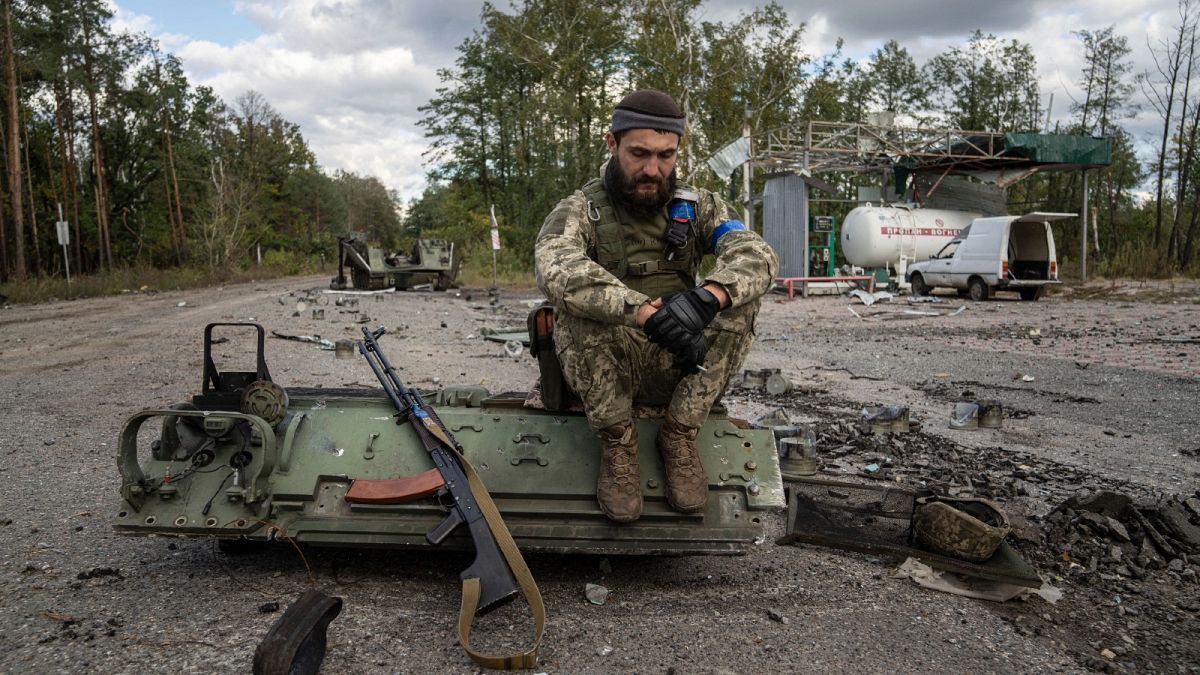The World Health Organization is highlighting the impact of the Ukraine war to mark World Mental Health Day on Monday, 10 October.
In the eight months of the war in Ukraine, the World Health Organization has confirmed almost 600 attacks on health – with hospitals and other critical infrastructure damaged or destroyed.
But buildings can be repaired or rebuilt. Ambulances and oxygen tanks can be replaced. Medical supplies can be replenished.
The human toll, though, is far greater.
As we write this, an estimated 6,114 civilians -- healthcare workers among them -- have been killed, including 390 children. About 7 million people are displaced internally. Another 7.4 million are currently living as refugees in surrounding countries and beyond.
And possibly the most damaging legacy of the war – its impact on mental health on a scale unprecedented in Europe since the end of World War II. Almost 10 million people at the present time are potentially at risk of mental disorders such as acute stress, anxiety, depression, substance use, and post-traumatic stress disorder (PTSD).
Globally, it’s estimated that around one-in-five people in conflict settings have a mental health condition. The situation in Ukraine is no exception. An estimated 22% of the population currently living in areas affected by conflict will, at any time during the next 10-year period, likely have some form of mental health challenge - with one-in-10 suffering from a moderate or severe condition like depression with suicidal behaviour or psychosis. People with pre-existing mental health conditions who previously relied on public mental health and social care are facing additional challenges in accessing the services they need.
The greatest needs are in areas the most severely impacted by the conflict, but populations in relatively safer parts of the country are also affected by anxiety or sadness, difficulty sleeping, fatigue, anger and unexplained somatic symptoms. These are all normal reactions to abnormal situations and for most people, these symptoms do improve over time, especially if they can meet their basic needs and access social support – a challenge at this time.
Even before the war, Ukraine had embarked on an ambitious health reform process, including efforts to strengthen mental health services. This foundation has, by and large, enabled the wider mental health system to respond fairly quickly to the ongoing emergency.
But the system is hard-pressed to meet overwhelming demand. Realising this, the government -- together with over 200 partners on the ground -- has rapidly stepped up investments in, and delivery of, mental health and psychosocial support, both on the national and, most important, local or community level.
In the context of the ongoing war, the people of Ukraine have so far shown a high level of resilience. We need to support them in learning how to manage their own stress and support each other, ensuring that those who develop mental health conditions can access services that are safe and evidence-based. Psychological interventions and clinical management of mental health conditions should be scaled up.
The Mental Health Gap Action Programme (mhGAP) establishes clinical protocols for non-specialist settings such as primary health care, allowing family doctors and nurses to identify and manage common mental health conditions, including stress-related ones.
For more severe cases, Community Mental Health Teams established in Ukraine in 2016, amid earlier conflict, are proving their value all the more at the present time.
For the diaspora of Ukrainian refugees in various countries, mental health services are in place in partnership with host governments and partners. And, not least, a crucial component of mental health interventions is the well-being of front-line responders - as Ukraine’s health and social care providers after suffering burnout battling the COVID-19 pandemic are now tasked with responding to the war.
It may seem difficult to snatch good news out of the grim headlines from Ukraine. But it is genuinely encouraging, even inspiring, to see how resilient the health system has proven all this while, constantly tested yet standing – including the focus on mental health, an issue that all too often is neglected, even during crises.
Ukraine has set an example for the entire WHO European Region on how the Government, under the auspices of the First Lady of Ukraine and in coordination with partners, has responded to the mental health needs of the population.
Ukraine is determined not only to restore its damaged health mechanisms and infrastructure but to do so smarter and better. Within this herculean effort, the building of the Ukrainian mental health system will continue both despite, and because of, the war.
The Ukrainian government and people know how critical mental health is for individual and national recovery – including the well-being of future generations. We are determined to help them succeed.
Dr Hans Kluge is WHO's Regional Director for Europe and Dr Jarno Habicht the organisation's Representative in Ukraine.












